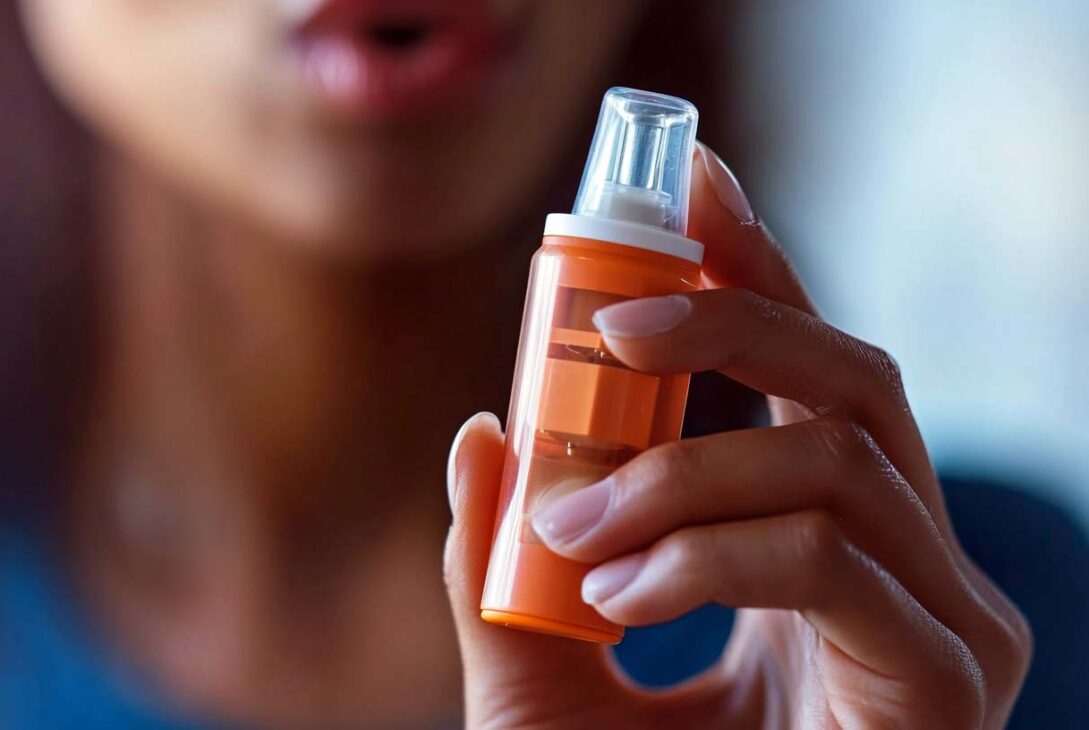Introduction
As the medical cannabis landscape expands, many individuals are exploring innovative ways to manage health conditions, particularly respiratory ailments like asthma. Among the newer entrants into the cannabinoid family is Delta 8 THC, distinct from the well-known Delta 9 THC primarily associated with cannabis. In this guide, we will explore Delta 8 inhalers and their potential role in asthma symptom management, navigating the benefits, risks, and essential considerations when contemplating this treatment approach.
Understanding Delta 8 THC
Delta 8 THC, or Delta-8-tetrahydrocannabinol, is a cannabinoid derived from the hemp plant. While it shares similarities with Delta 9 THC, its effects are generally perceived as milder. Here’s what you need to know:
- Psychoactive Effects: Delta 8 THC engages with the body’s endocannabinoid system but offers a less intense psychoactive high compared to Delta 9 THC, making it appealing for those seeking relief without overwhelming effects.
- Therapeutic Potential: Emerging research suggests Delta 8 THC may exhibit anti-inflammatory, analgesic, and anxiolytic effects—qualities that could prove beneficial for those suffering from chronic health issues.
Asthma and Respiratory Health
Asthma is characterized by recurrent symptoms such as shortness of breath, wheezing, and coughing due to inflamed airways and restricted airflow. Managing asthma is crucial, not only for symptom relief but for preventing potentially life-threatening exacerbations.
Risks of Traditional Cannabis Use for Asthma
Using cannabis, particularly through smoking or vaping, poses significant risks for asthma patients:
- Respiratory Irritation: Inhalation of anything can irritate the airways. Traditional methods of consuming cannabis can provoke asthma symptoms and increase the likelihood of an asthma attack.
Potential Benefits of Delta 8 THC for Asthma
Despite the concerns regarding inhalation methods, some evidence exists showcasing Delta 8 THC’s potential benefits:
- Bronchodilator Effects: Some cannabinoids, including THC, may function as bronchodilators, helping relax bronchial muscles and facilitating easier breathing. While Delta 8 THC shows promise in this area, further research is warranted to fully understand its impact when inhaled versus through other methods.
- Anti-Inflammatory Properties: Preliminary studies indicate that Delta 8 THC may help reduce inflammation in the body, a crucial factor in asthma management.
Delta 8 Inhalers: Considerations and Risks
Are Delta 8 Inhalers Safe for Asthma?
Using Delta 8 THC via an inhaler is a nuanced topic, particularly for individuals managing asthma:
- Respiratory Irritation: Inhaling Delta 8, despite its potentially milder effects, may still irritate the lungs, leading to increased asthma symptoms. The delivery method is paramount; inhalers may still irritate the respiratory system.
- Lack of Research: Currently, there is a scarcity of rigorous studies specifically investigating Delta 8 THC’s effects on asthma, which means that current knowledge is largely anecdotal.
Alternative Methods of Consumption
Given the concerns surrounding inhalation, exploring alternative methods to access the potential benefits of Delta 8 THC can be wise:
- Edibles and Tinctures: These options allow Delta 8 THC to interact with the body without the additive stress of inhalation. Edibles provide sustained effects over time, while tinctures can offer a more controllable dosage.
- Topical Products: Although less researched for asthma, topical applications of Delta 8 THC might be explored for localized relief, but effectiveness for respiratory issues remains uncertain.
Practical Considerations for Using Delta 8 THC for Asthma
Consulting a Healthcare Provider
Before integrating Delta 8 THC into your treatment plan, it’s essential to have a conversation with a healthcare provider who understands cannabis:
- Symptom Management: Discuss which specific symptoms are most troublesome and whether Delta 8 THC might be appropriate for your condition.
- Monitoring Effects: Regulate your experience by maintaining a symptom log. This will help identify whether Delta 8 THC affects your asthma positively or negatively.
Choosing the Right Product
- Product Variations: The market offers numerous Delta 8 products with varying formulations and potencies. Reading labels and understanding what’s in your products is crucial.
- Route of Administration: Opt for methods that are less likely to irritate the lungs. Non-inhaled alternatives may offer safer options for asthmatic patients.
Conclusion
Navigating the use of Delta 8 THC for asthma symptom management involves careful consideration of both benefits and risks.
Key takeaways include:
- Avoid Inhalation: Smoking or vaping cannabis, including Delta 8 THC, can exacerbate asthma symptoms.
- Explore Alternatives: Investigate other consumption methods like edibles and tinctures for a safer approach.
- Consult a Healthcare Provider: Always seek guidance before trying any new treatment, especially with cannabis products.
- Monitor Effects: Documenting changes in your symptoms could provide invaluable insight into the efficacy and safety of the treatment.
Actionable Tips
- Research Thoroughly: Stay informed with the latest studies on Delta 8 THC and asthma.
- Consult Experts: Collaborate with medical professionals acquainted with cannabinoid treatments.
- Start Slow: If you choose to try Delta 8 THC, initiate with lower doses to assess your body’s response.
Final Thoughts
Using Delta 8 THC inhalers for asthma symptom management is a complex topic requiring informed decision-making and professional guidance. While there’s potential for therapeutic benefits, the associated risks from inhalation methods warrant careful consideration. By exploring alternative consumption methods and staying updated on relevant research, individuals can develop personalized management strategies tailored to their needs. Each step taken towards understanding and utilizing Delta 8 THC responsibly could pave the way for a healthier respiratory journey.





















